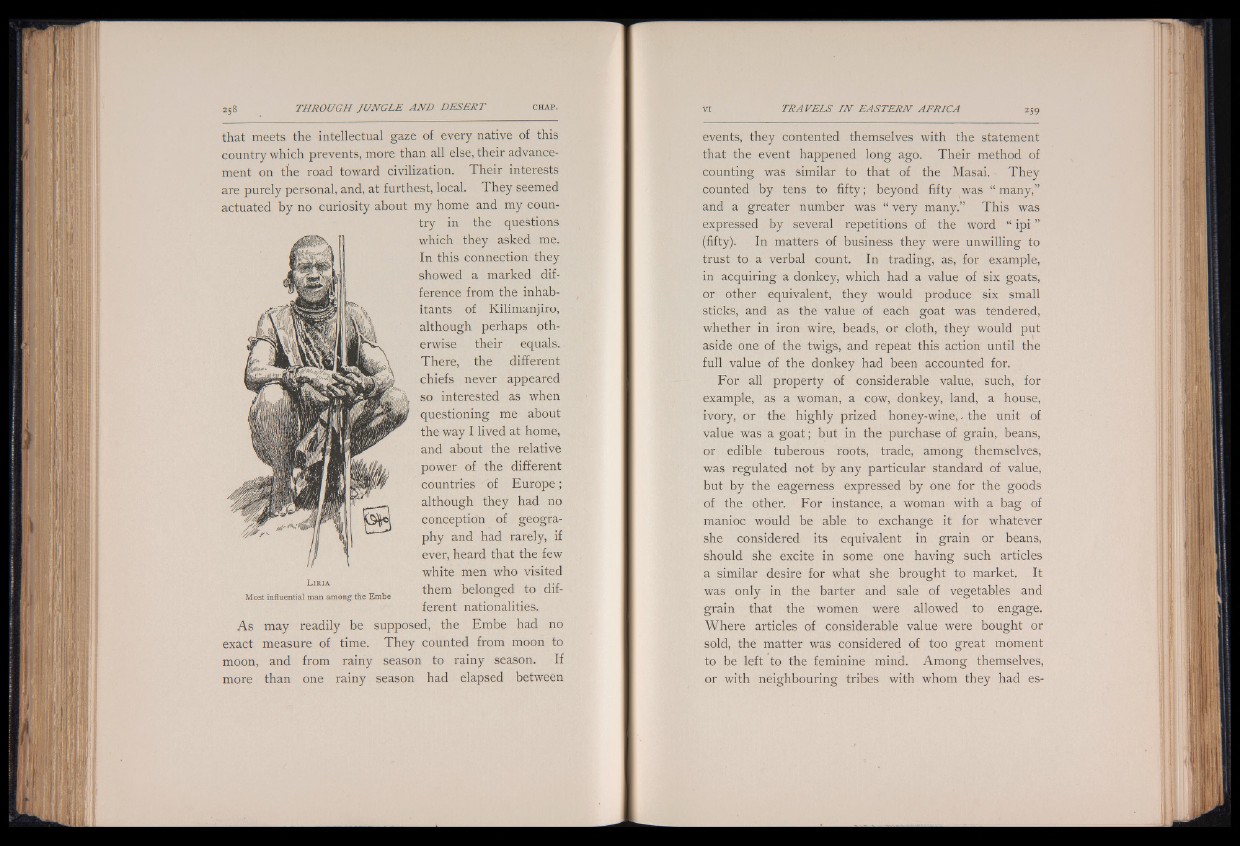
that meets the intellectual gaze of every native of this
country which prevents, more than all else, their advancement
on the road toward civilization. Their interests
are purely personal, and, at furthest, local. They seemed
actuated by no curiosity about my home and my country
in the questions
which they asked me.
In this connection they
showed a marked difference
from the inhabitants
of Kilimanjiro,
although perhaps otherwise
their equals.
There, the different
chiefs never appeared
so interested as when
questioning me about
the way I lived at home,
and about the relative
power of the different
countries of Europe;
although they had no
conception of geography
and had rarely, if
ever, heard that the few
white men who visited
. L . them belonged to dif- M o s t in flu en t ia l m an am o n g th e E m b e 0
ferent nationalities.
As may readily be supposed, the Embe had no
exact measure of time. They counted from moon to
moon, and from rainy season to rainy season. If
more than one rainy season had elapsed between
events, they contented themselves with the statement
that the event happened long ago. Their method of
counting was similar to that of the Masai. - They
counted by tens to fifty; beyond fifty was “ many,”
and a greater number was “ very many.” This was
expressed by several repetitions of the word “ ipi ”
(fifty). In matters of business they were unwilling to
trust to a verbal count. In trading, as, for example,
in acquiring a donkey, which had a value of six goats,
or other equivalent, they would produce six small
sticks, and as the value of each goat was tendered,
whether in iron wire, beads, or cloth, they would put
aside one of the twigs, and repeat this action until the
full value of the donkey had been accounted for.
For all property of considerable value, such, for
example, as a woman, a cow, donkey, land, a house,
ivory, or the highly prized honey-wine, - the unit of
value was a goat; but in the purchase of grain, beans,
or edible tuberous roots, trade, among themselves,
was regulated not by any particular standard of value,
but by the eagerness expressed by one for the goods
of the other. For instance, a woman with a bag of
manioc would be able to exchange it for whatever
she considered its equivalent in grain or beans,
should she excite in some one having such articles
a similar desire for what she brought to market. It
was only in the barter and sale of vegetables and
grain that the women were allowed to engage.
Where articles of considerable value were bought or
sold, the matter was considered of too great moment
to be left to the feminine mind. Among themselves,
or with neighbouring tribes with whom they had es